Uncategorized
-
 Astronomy
AstronomyAlien life may be possible even at the Milky Way’s edges
Phosphorus detected far from the Milky Way’s center seems to extend the zone where life could exist in the galaxy by thousands of light-years.
By Bas den Hond -
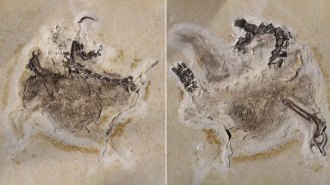 Paleontology
PaleontologyPaleontology has a ‘parachute science’ problem. Here’s how it plays out in 3 nations
When researchers study fossils from lower-income countries, they often engage in dubious or illegal practices that can stifle science.
-
 Math
MathHere’s how we could begin decoding an alien message using math
A new mathematical approach looks for order in strings of bits – without relying on human assumptions.
-
 Astronomy
AstronomyIn a first, JWST detected starlight from distant galaxies with quasars
Until JWST’s sharp infrared eyes came along, it wasn’t possible to see the galaxies hosting extremely bright supermassive black holes called quasars.
-
 Genetics
GeneticsDaphne Martschenko is a champion for ethical, inclusive genomics research
A bioethicist focused on the genomics revolution, Daphne Martschenko fosters open discussion through “adversarial collaboration”
-
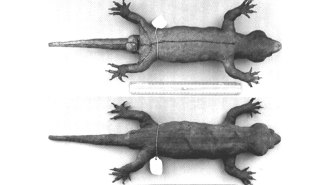 Animals
AnimalsDNA has revealed the origin of this giant ‘mystery’ gecko
A genetic analysis of a 19th century museum specimen, the only known example of the planet’s biggest gecko, has rewritten the animal’s backstory.
-
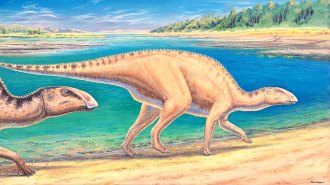 Life
LifeNew fossils from Patagonia may rewrite the history of duck-billed dinosaurs
New findings are adding a wrinkle to researchers’ understanding of how duck-billed dinosaurs conquered the Cretaceous world.
By Jake Buehler -
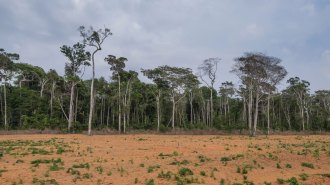 Ecosystems
EcosystemsThe Amazon might not have a ‘tipping point.’ But it’s still in trouble
Scientists race to foretell the fate of the vast forest facing deforestation and climate change.
By Nikk Ogasa -
 Physics
PhysicsPhysicists split bits of sound using quantum mechanics
New experiments put phonons — the tiniest bits of sound — into quantum mechanical superpositions and show they are as weird as other quantum entities.
-
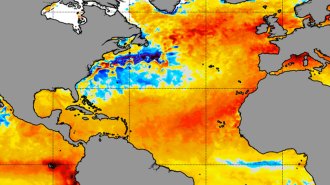 Climate
ClimateWhy is the North Atlantic breaking heat records?
Record-breaking sea-surface temperatures off the coast of Africa may affect the 2023 hurricane season. What’s fueling the unusual heat is unclear.
By Sid Perkins -
 Astronomy
AstronomyA supermassive black hole orbiting a bigger one revealed itself with a flash
A supermassive black hole binary system has puzzled astronomers for decades. Now they’ve finally seen direct signals from the smaller of the two.
-
 Tech
TechHow understanding horses could inspire more trustworthy robots
Computer scientist Eakta Jain pioneered the study of how human-horse interactions could help improve robot design and shape human-robot interactions.